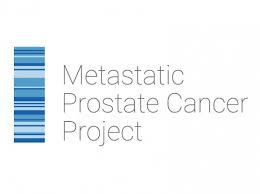This interview, “How You Can Participate in Genomic Research,” is provided by Grand Rounds in Urology’s content partner, Prostatepedia.
Dr. Eliezer Van Allen, Assistant Professor of Medicine at Harvard Medical School, a clinician at Dana-Farber/Partners Cancer Care, and an Associate Member at the Broad Institute of MIT and Harvard, focuses on computational cancer genomics, using new technology in precision medicine, and resistance to targeted prostate cancer therapies.

Prostatepedia spoke with him about how even those of you in remote areas can participate in nationwide genomic research study for men with advanced or metastatic prostate cancer.
What is it about medicine and caring for patients that keeps you interested and engaged?
Dr. Eliezer Van Allen: There are two answers to that question. One, the scientific answer, is that it’s been so remarkable to see how quickly advances that we’ve learned from studying patients with cancer have immediately translated into the clinic and have impacted my patients’ lives. It’s impacted people I don’t know, and that cycle of innovation is becoming quicker. It’s so exciting. It’s a privilege to be part of that from a professional level.
The other answer is more of a humanistic thing. I went into medicine because of my experiences at Camp Kesem, which is a camp for kids whose parents had cancer. It was a life-changing experience to be involved with that and to help drive it from the beginning. Whether or not any individual therapy works for any of my advanced cancer patients, there’s a human element to this job that’s very profound. That is also a privilege, to be involved with that day-to-day, no matter what.
Camp Kesem is still around, right?
Dr. Van Allen: Yes, it’s growing amazingly. There are over 100 camps now around the country, and thousands of families are involved. It’s wonderful.
Have you had any patients who changed either how you view the art of medicine or your own role?
Dr. Van Allen: Absolutely. At some level, every single patient both challenges and reinforces aspects of what it means to be a doctor and deliver care. Each in their own way has changed the way I think about things. There are obviously some stories that stand out and some experiences.
Some of the patients who’ve had the most catastrophic outcomes and succumbed to the disease in rapid form have taught me the most about what it means to live your life to the fullest, whatever that means to you. I have a lot of respect for them.
It’s a special thing to care for people at the particular moment, when they face big life questions.
Dr. Van Allen: About eight or nine years ago, I wrote a piece for the Journal of Clinical Oncology’s Art of Oncology series. It was about this one patient I had as a first-year fellow who had this positive thinking attitude in the wake of the most potentially catastrophic scenarios up until he passed away. It was such a surreal thing. In that case, it was rare, but I think it teaches you a lot about what it means to be human and how hard this disease is.
What is the goal of the Metastatic Prostate Cancer Project?
Dr. Van Allen: The Metastatic Prostate Cancer Project is a patient-driven research project whereby, rather than expecting the patients to come to us to join and participate in advanced research, we bring the project to their doorstep, and we engage with patients in new ways. We give patients an opportunity to share information about themselves and share their tumor specimens for us to do genetic testing. The goal is building the largest genomic registry of prostate cancer that we can learn from, and in so doing, accelerate that discovery to translation cycle even more.
Can you give us some updates on how the project has been going since you launched?
Dr. Van Allen: We launched this project in January 2018 in a patient population that is known not to talk about their disease in any venue, under any circumstances, to anyone. There’s no social media presence for this disease space, or at least on the surface, and frankly, we would’ve been thrilled had ten people signed up. Our sister project, the Metastatic Breast Cancer Project, has a loud and overt presence of women taking selfies with their saliva kits, so we weren’t sure how this was going to work.
We’re a little past a year from launch and over 700 men have engaged in research, given us consent to access their samples, filled out the patient-reported survey, and joined this Count Me In movement. It’s remarkable, but not only have these 700 men signed up, we’re already at the other end of the cycle of this project now, and we’ve generated complete data sets for the initial wave of these men. By complete data set, I mean genetic, clinical, and patient-reported data, and we’ve put that data out to the entire community in the research setting to learn from.
This proves the principle that we mean what we say when we’re generating data for the community. We’re not trying to build a silo here. This is patient-demanded, and therefore patient-driven, from day one. From every aspect across the board, it’s been remarkable and exciting to see how we’ve done so far.
We are 150% absolutely still looking for patients. We’ll always be looking for patients. Anyone who’s interested should feel comfortable to go to MPCProject.org and click Count Me In.
What kinds of patients should join? Anyone with prostate cancer?
Dr. Van Allen: This project is for advanced or metastatic prostate cancer, which means prostate cancer that’s left the gland. That could be folks with local, regional prostate cancer involved in the lymph nodes, folks with biochemical recurrence only (only PSA detected in the blood), and all the way to patients with heavily pretreated, advanced disease that’s spread to bone, liver, or wherever. Anyone in that spectrum is considered advanced or metastatic from our perspective.
The project is basically unending, right?
Dr. Van Allen: That’s the goal, releasing it as fast as we can.
Do you just release the data, or are you also forming collaborations with other institutions or projects?
Dr. Van Allen: We’ll release the data. We’re obviously going to try to learn from it ourselves and use it to come up with perhaps new drug targets, biomarkers, and whatnot, but also we would like to connect with other efforts that are spiritually aligned in any way that’s feasible.
One of the best outcomes would be that some researcher who is in no way affiliated with our project finds our data useful and uses it for their research to inform what they do. We’re already starting to see that happen with our sister projects where there are scientists and labs that we are not affiliated with who are using the data to inform how they think about their research and their projects. All of those outcomes are on the table, and we’re excited to pursue all of them.
Is there anything else you want patients to know about how the project is doing, about further studies you’re doing, or other studies you think people may find interesting?
Dr. Van Allen: This is a patient-driven project. Some of the patients who’ve given us feedback on their experiences so far have also prompted questions that we can ask that we, in our little academic bubble, probably would’ve never thought of. That’s how we’re starting to dive into things that are driven by patient experiences or that we’re observing in the patients who have signed up, down to questions that might seem curious but are illuminating, ones that we hadn’t intended initially.
For example, in the first patient data release, when asked if they had surgery for their prostate, almost half the patients marked: “unknown.” We can compare that to their medical record and sort that out, but it provides a window into something that wasn’t the initial intent of the project. That feedback opened up a lot of interesting questions and opportunities for research that we hadn’t necessarily anticipated up to that point.
Men didn’t know if they’d had prostate cancer surgery or not?
Dr. Van Allen: It may have been the way we asked the question. It may have been that patients were interpreting what they were supposed to answer. We don’t know. The point is that this is not something we initially set out to do, but it is an early example of how patients can guide where the research needs to go.
I just presented this project at the American Urologic Association meeting, and a gentleman came up to me afterwards. He’s had metastatic prostate cancer for four years and a complete response to cancer immunotherapy, and he wanted to know if he was eligible for this project. Not only is he eligible, but he’s an extraordinary case. We want to understand why. This patient is not within 500 miles of an academic medical center, and he would otherwise never be approachable or available to engage in research. We exchanged information, and he’s going to sign up.
Patients may not realize: they have the power to drive this field forward in this unique way. It’s not something that medicine is used to doing. We want to get the message out that this is all starting with patients and their ability to contribute. That will determine how far this goes.
It’s easy for them to participate: go to the website, fill out the forms, and give a blood sample?
Dr. Van Allen: Yes. You don’t even have to do the blood sample if you don’t want to. It’s exactly what you described. Go to the website, click a few buttons. There’s a very simple online consent form. We’ll send you a saliva kit and a blood biopsy kit and take it from there.
Can you still participate even if you’re in a remote area?
Dr. Van Allen: Yes, anywhere in the United States and Canada. For the blood biopsy, we send you a kit, and you bring it to your next lab draw, PSA test, or whatever, and there are instructions in the kit for the phlebotomist. In some cases, phlebotomists have not been willing or able to participate, so we can provide vouchers to patients to do it at a Quest Diagnostics lab or somewhere convenient to them. The intent here is that the patient bears no financial burden in participating.
View this interview on the Prostatepedia website or leave a comment here.
About Eliezer Van Allen, MD
Eliezer Van Allen, MD, is an associate member at the Broad Institute of MIT and Harvard and an assistant professor at Dana-Farber Cancer Institute and Harvard Medical School. His areas of focus are computational cancer genomics, the application of new technologies such as massively parallel sequencing to personalized cancer medicine, and resistance to cancer therapeutics. Dr. Van Allen’s current research includes using genome sequencing of genitourinary (prostate, bladder, kidney, and testicular) cancers to determine the appropriate treatment for individual patients. Dr. Van Allen earned a B.S. from the Symbolic Systems Program at Stanford University and his M.D. from the David Geffen School of Medicine at UCLA. He completed his residency in internal medicine at the University of California, San Francisco, and served as a fellow in medical oncology at Dana-Farber.

